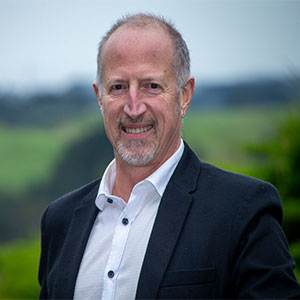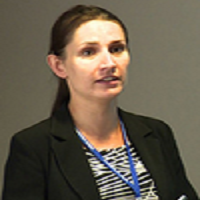About Conference
Aquaculture-2025 invites all participants from around the world to attend the 14th Global Summit on Aquaculture and Fisheries (GSAF-2025) from December 17-18,2025. Amsterdam, Netherlands. This global conference features quick presentations, oral lectures, poster presentations and exhibits.
With the assistance of an additional 1,000 scientific societies, organizes more than 3,000 international events, including more than 300 conferences, over 500 forthcoming and past symposia, and workshops throughout the United States, Europe, and Asia.
Aquaculture is the practice of reproducing aquatic organisms, such as fish, mollusks, crustaceans, and aquatic plants, and is the focus of a fisheries conference that brings together a diverse group of experts from around the world. These experts include aquaculture engineers, researchers, and policy makers from academia and industry. Agriculture requires some kind of breeding process intervention to increase output, such as regular storage, feeding, predator protection, production gains from different regions of the world, and the proportion that comes from aquaculture. Aquaculture is crucial in ensuring that there is an adequate supply of nutrient-rich food to feed the expanding global population. But doing so necessitates an equivalent increase in the feed supply.
Aquaculture Conference offers the following advantages:
• Encourages effective communication and gathering among persons engaged in cutting-edge fisheries and aquaculture projects on a national and worldwide scale.
• Increase the sharing of information, expertise, and research developments on pertinent issues to ensure that aquatic resources are used, developed, and conserved to their fullest potential.
• Motivate young scientists and researchers to carry out better research and studies that will create new opportunities for a better society.
• Efforts to increase collaboration among pertinent governmental and non-governmental institutions.
• Seek to increase public awareness by discussing various developments and difficulties in the aquaculture and fishing industries as well as by showcasing cutting-edge goods and services at exhibitions.
Sessions & Tracks
Track 1: Aquaculture Nutrition
Aquacultures are simply defined as aquatic organisms. Fish require the same nutrients that all animals require for health and reproductive growth. It includes proteins, minerals, and vitamins. The main objective of aquaculture nutrition is to balance the food portion which should be composed of fish meal and fish oil at the average rate. Improved efficiencies in aquatic nutrition and aqua feed development are essential to the long-term development of local aquaculture industry.
Track 2: Shellfish Farming
Shellfish farming helps to improve sediment quality by loosening and dispersing silt and muck, and helps add oxygen to bottom waters and sediments. Filter-feeding bivalve molluscs are an essential link between the bottom-dwelling aquatic communities and phytoplankton production in the water column. Shellfish are highly efficient water filters that directly remove particulate material thus reducing turbidity and both directly and indirectly removing nitrogen and other nutrients. Via this process, these highly efficient water purifiers remove or reduce organic matter, nutrients, silt, bacteria and viruses, and improve clarity and light transmission which, in turn, improves the condition of critical habitat, including survival of critical habitat species such as sea grasses and other submerged vegetation.
Track 3: Environmental Impacts in Aquaculture
Impacts of aquaculture on the environment are increasing. The main influence of aquaculture on water quality is to increase the suspended substances and the nutritional salts in water. It is an important issue as aquaculture expands globally. In South East Asia shellfish are produced heavily and poorly managed. Farmed fish are generally free from environmental contaminants such as heavy metals. Environmental impacts of aquaculture are dependent upon the species farmed.
Track 4: Aquaculture Disease and Health Management
The infectious disease poses one of the most significant threats to successful aquaculture. Negative environmental effects may occur serious oxygen shortage caused by disintegrating natural substances. There will be no treatment for viral diseases. Most of the fish diseases are restricted to fish and poses no risk to handlers. It’s essential to report any infections or diseases to fish as quickly as time permits. This leads to early administration and regulation of pathogens for the regular environment.
Track 5: Fishery Resource Analysis and Monitoring
The Fishery Resource Analysis and Monitoring, monitors ground fish and halibut fishing activities in the Federal fisheries off Alaska and conducts research associated with sampling commercial fishery catches, estimation of catch and by catch mortality, and analysis of fishery-dependent data. The division is responsible for training, briefing, debriefing, and oversight of observers who collect catch data onboard fishing vessels and at onshore processing plants and for quality control/quality assurance of the data provided by these observers.
Track 6: Genetic Biodiversity in Aquaculture
Genetic biodiversity helps produce the variety of shapes, sizes, behavior, and colours that make aquatic species valuable and interesting. It also allows species to adapt to new farming systems new habitats. Without genetic biodiversity there would be no special varieties or breeds of aquatic species eventually species would go extinct as they would be unable to cope with climate change add other changes to their environment
Track 7: Marine Ecology and Biological Oceanography
Biological oceanography is analogous to marine biology, but is different because of the perspective used to study the ocean. Biological oceanography takes a bottom up approach (in terms of the food web), while marine biology studies the ocean from a top down perspective.
Marine biology is the study of marine organisms, their actions and relations with the terrain. Marine biologists study natural oceanography and the associated fields of chemical, physical, and geological oceanography to understand marine organisms.
Track 8: Fisheries Sciences
Fisheries Science is a department of marine science that offers with studies on the existence history and state of fish stocks. The term ‘existence history’ refers to the widely wide-spread biology of a fish stock. The time period ‘state of a fish stock’ refers to the range and weight of fish in the stock i.e. current stock biomass in tonnes.
Track 9: Animal Welfare in Aquaculture
Aquaculture is an important farming activity in EU. Farming of fish has increased in recent years and science to access welfare is evolving. Fish nurture in aquaculture systems faces numerous welfare challenges of appropriate production facilities to ensure the well-being of growing numbers of farmed fish are critical. A key welfare. The development and implementation problem for farm fish is infection by disease and parasite. To align welfare issues should follow some welfare rules for freedom fish like Freedom from hunger and thirst, discomfort, pain, and injury, from fear and stress.
Track 10: Sustainability in Aquaculture
Aquaculture and fishery are one of the important sectors in the economy. Sustainable aquaculture is a dynamic concept and sustainability vary with species, location and, state of knowledge and technology. Aquaculture should have environmental as well as economic sustainability. Sustainability of species depends on feeding and lifecycle habitats. Aquaculture can improve the sustainability of small scales farms. Multiple uses of water are an important aspect of the sustainable aquaculture system.
Track 11: Immunology & Microbiology of Aquatic Species
Aquatic Microbiology is dedicated to the advancement of microbial research in aqueous environments, with an emphasis on freshwater, estuarine, and oceanic ecosystems. Aquatic microbes have a variety of roles in ecosystems and are essential to the biogeochemical cycles on the planet. Aquatic microorganisms are also genetically, physiologically, and environmentally varied, with a wide range of evolutionary, adaptive, and physiological responses. Organisms' immune systems defend them against parasites, pathogens, and viruses. The majority of what we know about the composition, function, and regulation of the two basic branches of the immune system, innate immunity and adaptive immunity, comes from mouse and human studies. However, there has recently been a surge in interest in fish immunology for a variety of reasons. Fish immune systems serve as useful comparative outgroups for evolutionary biologists studying immune system evolution. Such comparisons should eventually lead to a better understanding of immune system design principles in general. production.
Track 12: Fisheries Conservation & Management
Fisheries management is the movement to secure fish assets so that sustainable misuse is conceivable, building on fisheries science and relying on prudent guidelines. Advanced fisheries administration is often referred to as an administrative framework of appropriate administrative rules based on characterized destinations and a mixture of administration involves executing the rules, which are put in place by a control framework and of recognition. A common approach is the biological system approach to fisheries administration.
Track 13: Fish culture
Fish culture is the process of raising desirable species of fishes in prison and managing them and their terrain to ameliorate growth and reduplication. Fishes are reared in fish granges, or hatcheries, much as ranch creatures are raised in the barnyard.
Through monoculture, our abysses, swell, and inland freshwaters hold huge implicit to give us with increased quantities of healthy and nutritional food. This is demanded to feed an ever growing mortal population so monoculture helps us with our' food security'.
The aspects of fish culture practice involve the use of organic coprolites and inorganic diseases in phytoplankton product that's the part of husbandry practice, still minding, rearing, breeding of fishes are coming under beast husbandry
Track 14: Mariculture
Mariculture is an exertion involving food product for mortal consumption. It's an exertion in which submarine organisms both shops and creatures are dressed in a confined terrain in the submarine medium which may be fully marine or marine mixed to colorful degrees with freshwater in the brackish water areas.
Monoculture is husbandry of swab water and brackish organisms like finfish, crustaceans molluscs and submarine shops. Mariculture, on the other hand is a technical sect of monoculture that's accepted in marine surroundings.
Track 15: Sustainable use of marine resources
Oceans, seas and coastal areas form an integrated and essential component of the Earth’s ecosystem and are critical to sustainable development. International law, as reflected in the United Nations Convention on the Law of the Sea (UNCLOS), provides the legal framework for the conservation and sustainable use of the oceans and their resources. This Focus Area on marine resources, oceans and seas integrates the three pillars of sustainable development and has also many interlink ages to the other Focus Areas. It can contribute to: food security and nutrition, climate change, sustainable consumption and production, energy, sustainable cities and human settlements, disaster risk reduction, sustainable agriculture, land desertification, forests, ecosystems and biodiversity, women’s empowerment, employment and sustainable tourism.
Track 16: Pond culture
Pond culture is a veritably popular monoculture product system with numerous submarine species dressed in ponds. To have successful pond product, ponds must be duly sited and erected, with careful assessment of water vacuity, volume, and quality
Advantages of pond culture include its simplicity, and fairly low labour conditions ( piecemeal from the harvesting of the fish). It also has low energy conditions. A major disadvantage is that the ranch operation is more dependent on rainfall and other natural factors that are beyond the planter's control.
They're an important source of food, sanctum, and shade for the small creatures that live in the pond. They also serve to reduce evaporation, purify water by removing redundant minerals, help the overgrowth of algae, and indeed control the mosquito population.
Participation/Presentation Option
Oral presentation: Oral Presentations may include the topics from researches, theoretical, professional or private practices in a concise manner. Individuals with personal experience are also welcome to present personal experience or narratives which help others in everyday life.
Speakers with a 30-minute slot should plan to speak for 20-25 minutes, and Keynote speakers should plan to speak for 40-45 minutes, with the remaining time to be used for questions and discussion by the Session Chair
Workshop: For workshop presenters also, topic of talk will be same as Oral presentation with more specialized techniques and detailed demonstration. The generalized time duration for workshop presentation is about 45-50 minutes. Interested participants can join with their respective team and present the workshop with their research coordinators with special group waiver on registration.
Poster presentation: Student Poster Competition will be organized at Aquaculture-2025 conference is to encourage students and recent graduates to present their original research. Presenters will be given about 5-7 minutes to present the poster including questions and answers. Judges may ask questions during the evaluation of the presentation. This is an opportunity for young scientists to learn about the recent findings of their peers to increase their capacity as multidisciplinary researchers. Poster displays will be in hard copy format of 1x1 M long.
For more details regarding Poster Presentation and Judging Criteria view Poster Presentation Guidelines
Webinar: Webinar presentation is designed for those interested attendees who cannot join in person due to schedule conflict or other obligations. In this option the presenter may record the presentation and their presentation will be presented in the Webinar presentation session.
E-Poster: e-Poster is also similar to the webinar presentation. In this session, their presentation will be published in the form of poster in the conference website and the presenter abstract will be published in the conference souvenir and journal with DOI
Exhibition: Aquaculture-2025 has the opportunity to exhibit the products and services from commercial and non-commercial organizations like Drug manufactures, Clinical Trial Sites, Management Consultants, Pharmacists, Business delegates and Equipment Manufacturers.
To know more about exhibitor booth details and benefits visit WHY TO EXHIBIT WITH US?
Advertisement: The conference program is a valuable resource that all attendees refer again and again as they navigate the conference. Advertising in the conference program is a great way to market and can help you securing long term business.
Sponsor Aquaculture-2025
Premium Sponsorship package
Additional Sponsorship package
Benefits of Participation
Advantages of Participating at our Conference
The advantages of the Speaker and abstract pages are created in Google on your profile under your name would get worldwide visibility.
Our comprehensive online advertising attracts 30000+ users and 50000+ views to our Library of Abstracts, which takes researchers and speakers to our Conference.
Meet with hundreds of like-minded experts who are pioneers in Aquaculture and share ideas.
All participants in the Conference would have a different reason to participate with eminent speakers and renowned keynote speakers in one-to-one meetings.
A rare opportunity to listen what the world's experts are learning about from the world's most influential researchers in the area of Aquaculture at our Keynote sessions.
Aquaculture-2025 intensive Conference schedule, you will acquire experience and expertise in strategic gift preparation that is worth its weight golf, forming an impressive array of recognised professionals
Best Poster Award nominations.
Award for Outstanding Young Researcher.
Group Registration Advantages.
Benefits of Participation for Speaker
Worldwide appreciation of the profile of Researchers.
Obtain credits for professional growth.
Explore the latest of cutting edge analysis.
Make long-term bonds at social and networking activities.
An ability to advertise one page in the distribution of abstract books and flyers that ultimately gets 1 million views and adds great value to your research profile.
Learn a transition beyond your area of interest to learn more about new subjects and studies away from your core subject of Aquaculture.
We have distinctive networking, learning and enjoyable integration into a single package.
Benefits of Participation for Delegate
Professional Development-Improve understanding and knowledge.
Attendance at Conference supports rejuvenates and energises delegates.
Your involvement in our webinar will help with a new methodology and ideology that can be used to broaden the outcomes of businesses or industries.
Opportunities for Aquaculture Summit researchers and experts in the same field to meet and exchange new ideas through a Conference.
Benefit of Participation for Sponsor
Exposure to the international Aquaculture would increase the possibility of new companies.
Opportunity to demonstrate your company's latest technologies, new products, or service your business to a wide range of international participants.
Increase business by our Conference participants through lead generation.
It takes a lot of time, effort and drive to create a successful company, so it's always nice to have a network of colleagues and associates to draw energy from individuals who share a common drive and objective.
Conferences in Aquaculture provide opportunities for more attention and contemplation that could help you move your company to the next stage.
Benchmarking main organization plans and moving it forward.
Get feedback from trustworthy people at our Conference to your company questions and challenges.
On our Conference banner, website and other proceedings, branding and marketing content, the advertising logo of your company.
Benefit of Association for Collaborators
Nobody has these massive visitors to Aquaculture in the world; this is the best forum to highlight society.
Creating long-lasting peer relationships.
In our Conference banner, website and other proceedings, branding and marketing material, promotional content and your Organization logo will increase your number of subscribers/members by 40%.
The exposure of our event to your Company listing in the Global Business forum will have a great effect on your association.
Your representatives can network to update their knowledge and understanding of your organisation and services with key Conference delegates.
Aquaculture advertising materials such as posters, brochures, pamphlets, services that will be circulated to hospitals, universities, society and researchers will be integrated with information.
Market Analysis
Agriculture can facilitate economic conditions, increase incomes and improve the food security of 80% of the world's poor, who work mainly in agriculture. With modern farming techniques, the market is growing using improved seeds, chemicals and fertilizers. Further, the use of sensors and the growing adoption of livestock facial recognition is facilitating the growth of the market. The growing government support for the development of new agricultural techniques and the global awareness of the benefits of agriculture over the years is expected to stimulate the growth of the agricultural market in the future period.
The modern world has replaced home-cooked foods with processed foods, which has resulted in the growth of the processed food industry. The global food processing equipment market is driven by increasing consumer demand for processed food, emphasis on food safety and worker safety, growing need to increase productivity, increasing concentration of manufacturers of food products to reduce manufacturing costs and government support to grow food Processing sector.









